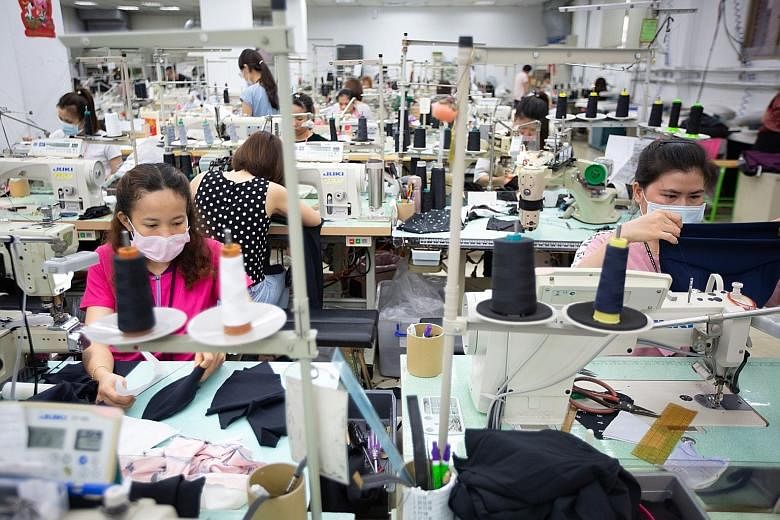News that Chile has cancelled the annual Apec meeting came as a double whammy, upending hopes that a resolution to the long-running US-China trade war was only weeks away and potentially elbowing aside smaller economies from having a say in any eventual deal.
Currencies and prices of farm products such as soya beans were buffeted yesterday by the announcement that Chile's President Sebastian Pinera has cancelled the Nov 16-17 summit due to unrest in Santiago over issues of inequality. The meeting would have seen 21 heads of government from the Asia-Pacific descend on the city.
US President Donald Trump had said he hoped to sign an interim trade deal with his Chinese counterpart Xi Jinping on the sidelines of the Apec summit.
The timing of a resolution is key. Mr Trump has threatened new tariffs on Chinese electronics and toys by Dec 15, should the two sides fail to reach an agreement.
Last month, China posted gross domestic product data (GDP) that showed the economy grew at an annualised rate of 6 per cent - the slowest rate since 1992 - as the US ratcheted up tariffs.
That has had knock-on effects across the region as China cuts back on imports. Singapore's GDP eked out a 0.1 per cent gain during the three months ended Sept 30, dodging a technical recession.
Indonesia's non-oil exports to China slipped 4 per cent during the first eight months of the year, according to government data.
"Indonesia suffers from China's economic slowdown," said Mr Harry Su, head of equity capital markets at Samuel Internasional. "Any delay to the timing of a resolution is bad news for us."
US officials are reportedly seeking another location for the meeting between Mr Trump and Mr Xi, and possibilities include Alaska and Hawaii, though Chinese officials may prefer a more neutral setting.
China also appears conciliatory. The Global Times, a publication aligned with Beijing, tweeted that the cancellation was "not a big obstacle" to signing a trade deal, provided there was an agreement.
The US-China talks have been progressing towards a "phase one" agreement. The process though has been fraught, owing to US demands for a timetable that would commit China to purchasing more American farm products including pork, soya beans and beef.
With both sides likely to resolve the dispute bilaterally, smaller economies risk being frozen out of any final deal, said Mr Adam Triggs, professor of economics at Australian National University. "There is a risk that the US will pressure China to buy more beef and wine and soya beans from them and not from anyone else," he said.
Smaller economies like Singapore count on big multilateral meetings because they are on equal footing with big rivals such as Japan and the US to discuss international issues like trade, said Mr Triggs, who was an adviser on the Group of 20 to former Australian premier Tony Abbott. "It's like that African proverb: 'When the elephants fight, the grass gets trampled'."
The trade war has sparked an exodus from China of low value-added production, including textiles. Foreign direct investment into Vietnam, for example, has risen over 7 per cent to more than US$14 billion (S$19 billion) during the first nine months of the year.
Rising labour costs in China will underpin ongoing flow of investment, said Mr Maxfield Brown, a consultant at Dezan Shira and Associates in Ho Chi Minh City. "Locations such as Vietnam are likely to maintain steady growth in the event that tariffs are removed."
SEE OPINION: Chile is a victim of its own success

